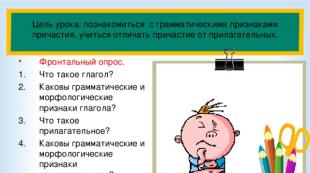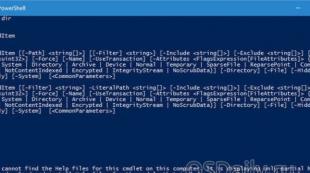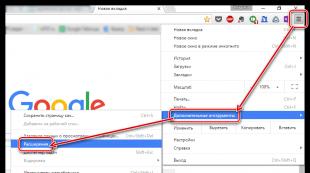Abstract: “The influence of the Internet on the life of a modern person. Internet addiction or how the Internet affects our lives
Now you will read some complete nonsense. It's your own fault. The Internet is a little less than completely full of nonsense. There was no point in climbing all sorts of other people’s blogs or, even worse, subscribing.
So I will tell you about the true essence of the Net. You will find out which demon you are feeding, along with a billion others, with your mana. But it's' too late!
The brief essence of the article in four theses:
- The Web seeks to absorb and digest all information flows of humanity.
- The web swallows people.
- The web makes things easier for people.
- The web affects social institutions.
The Internet is such a thing...
No, bad. It is bad to call phenomena “things.” Let's define a small, not very correct, but loved by various marginalized people like the Peresleginites, concept: information and energy object. Comrades from Pereslegin’s school use this phrase to describe various social phenomena, such as, for example, bureaucratic machines. Usually, when examining them, they strive to separate the object from the human subjects that feed it. It is clear that the bureaucratic machine will instantly disappear if the bureaucrats that compose it are removed. In much the same way that a cloud of gas disappears, remove its constituent molecules. But physicists are inconvenient to study molecules separately, and sociologists and information objectologists are inconvenient to study separately people who support the “life” of some kind of superhuman formation. So, the definition is:
Information object- information that does not depend on the carrier and develops according to its own laws, residing in the information space.
Information and energy an object, accordingly, is an information object that is powered by the energy of the carrier. The word “energy” is used here in a psychological sense, as “the life force of people,” that is, that difficult-to-measure substance that lives in the souls of each of us, which helps us move, be creative and think that life is not so meaningless. It’s unlikely that this energy can be measured in joules, but the word has stuck. Personally, I prefer the words Mana, Prana or Qi. But shouldn’t we call our objects information-mana? Let there be energy.
Please figure out what information space is for yourself. It’s not small, obvious things to explain to you. You don’t live in the forest, but in that very information space, by the way, and this space is the nerve of the powerful technosphere, reliably protecting us all from the horrors of the wild.
Again. Thesis No. 1
The Internet seeks to absorb and digest all information flows of humanity.
The Internet is a complex of many information and energy objects that has developed on the basis of well-known technologies and is the main consumer of their capabilities, connected into a single super-object by a common desire. The Internet seeks to absorb and digest all information flows of humanity. And this is the most important thing you need to know about him.
This desire is, apparently, embedded in the very essence of the World Wide Web. Each individual member of the Network, each site, search engine, blog, may not be aware of the goal of information takeover of the world. Google collects visit statistics, such as to more accurately show ads to visitors - this is true. But the objective reason why it is profitable for Google is not to sell the search service for money or places in the top impressions, or to do something similar, but it is profitable to collect as much information as possible and process it as accurately as possible in order to learn as much as possible about visitors its great catalog of links - in the deepest essence of the Internet universe.
All major Internet sites have the goal of collecting, processing, and doing something with some information, and the most valuable information is social, because nothing worries a person more than himself. Strain your mind, think about what else from the information flows of civilization that has not been captured by the Network? If you figure out at the same time how to capture these flows, you will be given all the benefits. You will become a startup founder, a useful person. The world will reward you.
Because the Internet is not just some naked desire to grab everything. Internet is force. This is the most important, most valuable, most complex thing that humanity has created in the first half of the twenty-first century. You see, energy doesn’t come from nothing. Christianity, the ancient great IEO, whose technological basis was a certain teaching, and whose goal was the salvation (in the Christian sense) of all human souls, absorbed the energy of the agony of Rome, and thanks to it it became what we know it. At birth, the Internet absorbed the energy of the agony of the great utopian projects of the twentieth century. It took two wars - the Second and the Cold - to develop computer technology to the level where the Network became possible, and it also took the death of the Soviet Union, so that on the wave of euphoria of liberation from the horror of nuclear missiles, on the wave of brilliant, well-trained mathematical emigrants from the former USSR, creative energy surged, filling the emerging technology with meaning. Thus the Web was born.
Again. This is the most important thing written here. The Internet is a force united by the main desire to absorb and digest all information flows of humanity. Everything follows from this.
Thesis No. 2
Man is the main source of information in human society. The information volume of everything that we invent and imagine, say and do many times exceeds the information volume generated by external forces affecting humanity, ranging from bird flights to solar flares. Of course, I mean only those natural phenomena that some people notice. Perhaps the volume of information about unnoticed phenomena is even higher by an order of magnitude, who knows? In any case, we all have approximately the same sky above our heads, and in order not to stare at it all our lives, we ourselves have to saturate the technosphere with information.
Thus, Thesis No. 2
The web swallows people.
Since man is the main source of information within humanity, the main subtask of the Web as a living and purposeful phenomenon is to train people in contact with it in such a way that they redirect flows of information through it.
The average person is in vain thinking about the freedom and independence of his powerful mind. We are very easy to train. Every psychologist knows what an absurdly enormous influence children's fears have. When he was a child, a little boy was bitten by a dog. He grew up, became a huge fat man, and could have killed three mongrels with one leg without straining too much - but trained childhood fear forces him to cross the road at the sight of a shaggy stray dog lying in the dust. The network does not bite us like a dog. On the contrary, it unfolds its countless riches before us, offers a thousand entertainments, and in the end hooks us firmly on the endorphin needle. Children are imprisoned more strongly, of course. The Web needs children, they will become adults, and maybe give it their whole lives. They will give up part of their life without question. It is more pleasant to communicate via the Internet. You can find out everything faster on the Internet. Everything is on the Internet. You can't be bored on the Internet. The network will accept you for who you are. Your friends will support you. They will like you. They will like your work. They will like your photos and your taste for reprinting jokes. And if you don’t want to, you will close yourself off from all your friends. Isn't that all you need?
Scary? So we haven’t reached the third thesis yet.
Thesis No. 3
The web makes things easier for people.
As you noticed from thesis No. 1, the most important thing in this whole little reflection, the Network strives not only to absorb, but also to digest all information flows in the world. Digesting is very important. This means to understand, to make it a part of yourself, not just some kind of information in the sense of a stream of bytes, but meaningful meta-data that can be used further. For example, how Google sells collects statistics for advertising. They really strive to make the machine understand what all these words entered into the search engine mean to the user. The whole essence of Google is hidden in this understanding. Unfortunately, along with the complication of algorithms for processing data streams by machines, there is also a downside. The fact is that in order to better understand what people want, it is not necessary to complicate the understanding. You can simplify the people themselves.
Let me remind you, thesis No. 2. We are excellent at training. Do you know why there is no dislike button on Facebook? It would complicate the communication model. From the point of view of the Web, introducing interface entities that force the masses to think about at least a choice between two buttons is a mistake. And in general, how are you going to build a post popularity metric to complete feeds if the like-dislike space is two-dimensional? Have you thought about this mathematically? So Facebook thought about it and decided - no need.
Of course, this is an extreme example. Each portal chooses whether to make tree-like comments, a self-assembled feed, or dislikes. There may be different approaches for different audiences. Somewhere on Habré, information about dislikes suddenly becomes valuable to the system. Somewhere in LiveJournal, tree-like comments are the most important thing there, the main collector and point of application of the information flow. But always and everywhere the system is subordinated to thesis No. 1. There is always and everywhere the possibility of user training. This means that we, Internet users, developing our erudition, intelligence, and so on on the one hand, inevitably simplify ourselves on the other.
Now I wanted to give examples, so to speak, from personal experience, to touch on the scale of Tolstoy and other great people I am reading now - but I decided that it was not worth it. Personal experience against the backdrop of statistics does not have much value. You can handle it yourself, come up with examples of how a person who did not know the Internet has a more complex, more integral mind than you. How people you know with a complex and integral mind distance themselves from this source of knowledge, avoid prolonged contact with it, feeling the desire of the Network to understand and primitize them. Great minds don't get stuck in the Web. It’s terrible for me to understand how meager and primitive my Russian language is, how one-sidedly I approach the topic, how weak my erudite mind is. This is an inevitable disease of absorption by the Internet, partial dissolution in it, and I am glad that I have not yet sunk to the pleasant, thoughtless clicking of the approval button in an endless feed of pictures and jokes, to the search for jokes and pictures to add to the feed, to contribute. Yes, there is still room for improvement. But this is false joy. To close the mind, you need something more than therapy, because ten years on the Internet are not in vain for a teenager who has become a young man - it’s already difficult for me to do without. I can only give myself as an example, against those whom I read not at the level of drafts on the Internet. For a full-fledged mind, you need something more, which Leo Tolstoy had and modern children with tablet computers in their hands do not. There is no better way to convince than to appeal to the reader’s personal experience - I’m sure you can do a good job of demonstrating to yourself that the Web makes it easier for users without me. I just told you why this happens.
Thesis No. 4
The web affects social institutions.
As follows from the theory of power, every politician wants to know where the power is, and strives either to take its side or to lure it to its own. The power now, of course, is in the Internet. Remember, I wrote about the energy of the collapse of the Soviets? I forgot to say about space expansion then - it also slowed down due to the Internet. I won’t say that this is bad - with developed information technologies, exploring space is easier and more enjoyable, and delaying a lunar colony for several decades, in general, does not mean anything. Well, let’s build it in 2050 and not in 2000, as the science fiction writers wanted, so what. But we have the Web. The problem is different.
Politicians sense where power is. And social institutions, starting, in fact, with the government, are controlled by politicians. Therefore, all the social institutions of the world, all education, health care, voting and government - everything strives to make part of the Network part of themselves. The surveillance of mail by intelligence services, revealed by Snowden, is, in general, a small and harmless result of the interaction of politics and the web. All these stupid Russian laws restricting freedom of information are an allergic reaction, a sneeze in response to an information and energy virus that is creeping into your information flows, unpleasantly controlling people, revealing an unpleasant truth. What seems truly scary to me is the Unified State Exam testing system.
You see, children’s thinking is simplified by the Internet (see thesis No. 3). I won’t say that they are becoming dumber - it would be incorrect to say that all the parameters of a child’s multidimensional consciousness are becoming worse. In some ways, the children of the Web are becoming freer and more erudite. But simplification, the development of thinking and elementary behavioral reactions is easier for analysis - yes, this is an actual observable truth. And the Unified State Examination, of course, makes its contribution to the process. The Unified State Exam originated as a reaction of the Russian Ministry of Education to modern trends, an attempt to move away from the Soviet experience and meet modern standards of high-quality global education.
What do you think dictates the fashion for these standards? Where is the power in the world? Who or what ultimately dictates to politicians the rules of the game, how to be in trend and keep up with progress?
Yes, you are absolutly right. Alas.
And the more predictable and algorithmically simpler the children’s answers to the exam test, and the stricter the assessment algorithms, the better from the point of view of the primitive machine to which we entrust the future. And you understand now that the Unified State Exam is only an indirect consequence, a small part of a great process?
Now let's talk what to do. I outlined the essence. Probably, something was written naively or incorrectly, I hope that the grain of truth is true - after all, for many years I have reflected on the problem of the essence of the Internet and its impact on the soul of the user. It would be a lie to say that everything that happens is evil; Having focused on the problems, I have barely touched on the positive aspects of the process, and yet they are no less grandiose. In any case, it is beyond our power to do anything. Of course, you can cut the wires, throw away your phone and go live in a distant village where Wi-Fi has never been found. You might even save your soul by doing this. But by staying here, with all the people, we will not throw our Network into a landfill. Let's see how it absorbs and digests many around us. What will the children of the Network become? It is very interesting.
I would only urge personal caution. You are in the Web. She wants to eat you.
The Internet has become an indispensable part of our lives. It is useful only if used when necessary and in moderation. Many will agree that you can find anything on the Internet, but is that all we need? The Internet has already replaced books, television and even live communication. More and more people have become dependent on this World Wide Web.
It is not difficult to identify Internet addiction. If, when you turn on your computer for work, the first thing you do is check your email, browse social networks and other unrelated sites, while forgetting about work, then the main sign of addiction is already there. The inability to control the time spent on the Internet, the obsessive desire to check email, loss of contacts outside the Internet (rare meetings with friends, reluctance to communicate in real life), depression and melancholy from the inability to go online - all these are indicators of Internet addiction. But the Internet causes particular harm to young people and teenagers. Today's youth are simply absorbed in the virtual world; it is already difficult to imagine their lives without social networks. Mostly fans of virtual communication are people suffering from an inferiority complex, i.e. they pretend to be who they really would like to be, but instead of self-realization in a living society, they choose a simpler method - the Internet. Shy people are also addicted to social networks, because communicating online is much easier than in real life. There are undoubtedly benefits from the Internet. There you can find media files of interest, find out the latest news, and satisfy your personal needs. But Internet addiction can lead to the following mental and health problems:
Decrease in intelligence 
The cluttered flow of information is harmful to the brain. Spending a lot of time on the Internet, we load it, force it to work continuously, processing essentially unnecessary information. The brain does not have time to rest, and as a result, we cannot express our emotions and finally understand the information received.
Information dependence
Frequent spending of time on the Internet develops dependence on receiving a large amount of varied information. If such information does not arrive, then we experience dissatisfaction and irritation, and all because the brain is concerned about the small amount of information, as it is accustomed to constantly receiving it from some social network.
Detachment from the outside world
Constant communication on the Internet forces you to perceive people by their online profile. More and more time is spent tracking news, photos, and statuses of virtual friends. Network communication becomes a priority over a real meeting. This develops desocialization of a person and leads to a loss of communication skills with real people. Overusing social media can cause you to become withdrawn and withdraw from real communication. In this case, the help of a psychologist is necessary.
Decreased concentration
The Internet, in particular social networks, combines several functions such as reading, communicating, listening to music at the same time. Because of this, it becomes difficult to keep our attention on one thing; our mind, out of habit, moves on to one thing or another, thereby preventing us from thinking consistently. This leads to problems with thinking, and the attention span decreases.
Harm to health
Long “get-togethers” on the Internet tire the brain and lead to stress in the body. Physical fatigue is observed, which leads to loss of performance. Considerable problems with vision, poor posture, and inflammation of the ligaments of the hand were noted.
Of course, Internet addiction needs to be fought! Everyone can get rid of it. To begin with, you should limit the time you spend using the Internet. Set a time frame for completing work in advance. Reduce your time on social media as much as possible. New hobbies will help you overcome addiction. Find yourself a hobby, do something more interesting that will bring you joy and satisfaction.
Just imagine how much important and useful you can do by avoiding pointless waste of time on the Internet. By giving up the virtual world, your life will be active and exciting. Meet with friends more often, go for walks, take care of yourself and you will notice how beautiful reality is. Appreciate live communication! Enjoy the real world! Live a real life!
We live in the era of the future! The speed of progress has become so great that things that seem science-fiction today are considered outdated and backward tomorrow. And more and more the Internet is absorbing our lives. Social networks alone are worth it. You can correspond with friends and girlfriends who live a thousand miles away from us, get to know each other, show everyone your best photos, and please your vanity with “likes.” There are a lot of cool groups and communities where you can chat on similar interests and learn a lot of new things without leaving home, for every taste on social networks. You can’t think of a better way to diversify the gray everyday life for us lovely ones.
Social networks began to appear approximately in 1969. At first, people were united by professional interests and hobbies. Now the functions and capabilities of social networks have expanded significantly. Odnoklassniki is considered the very first official network, which was founded in 1995 and operates to this day. Odnoklassniki already has about 50 million users.
Imagine the scale!
Now you don’t even need a computer for this wonderful entertainment. Everyone has fashionable pocket gadgets for accessing the Internet, with heaps of all kinds of applications; for entertainment on the Internet, you can be online around the clock, and don’t care about addiction. Stop! What addiction?
The fact is that many people are so immersed in the virtual world of online communication that they can no longer imagine their lives without it. Sometimes this state reaches the point of fanaticism. Users start spending money on paid social networking services without realizing it. There are many reasons for this addiction: unfulfilled dreams, internal complexes, communication problems. In virtuality it is much easier to “draw” your fictitious ideal image for other users, besides, social networks provide a certain security when communicating, which is not the case in real life.
Is your online time slowly and surely approaching infinity? Here main signs of Internet addiction:
1. You have many “friends” and hundreds of groups. You won’t rest until you scroll through all the news to the end, give all the likes, and write comments on the new photos posted.
2. The lack of Internet and the ability to access social networks can overshadow your vacation at sea, a picnic with friends in nature, and make lectures at school unbearable.
3. You are replacing normal communication with virtual communication. On the street: “Hello, Masha!! Haven't seen each other for a hundred years!!! Write to me on **ntakt today, let’s chat at least. Bye!
 4. You become indifferent to old hobbies. If you used to love surprising your family with culinary masterpieces, now you may not even finish cooking the dumplings, because your colleague posted photos from a corporate party, and you urgently need to “comment on them.”
4. You become indifferent to old hobbies. If you used to love surprising your family with culinary masterpieces, now you may not even finish cooking the dumplings, because your colleague posted photos from a corporate party, and you urgently need to “comment on them.”
5. You are online even at the expense of precious hours of sleep. Although you understand perfectly well that unbearable workdays await you tomorrow, because without enough sleep, you become irritable and very disorganized.
7. You add strangers as friends to feel part of society, to belong in the crowd.
8. Often you deliberately take interesting photos just to post them on your online page.
We offer some important tips on how to get rid of Internet addiction:
1. The most important thing is to want to get rid of this addiction and set a goal. Realize how much precious time you are wasting on this merciless and essentially useless “time killing”.
2. If possible, reduce the time you spend online. If you do go there again, for example, just carry on correspondence, excluding all other “opportunities” of the social network: viewing photos, news, comments.
3. Switch to live communication. Meet your old friends, “abandoned by you,” but so close and loved.
4. In your free minutes, replace sitting “online” with another activity, for example reading books, which will also be useful before bed.
 5. One of the reasons for dependence on social networks is the lack of positive emotions in life. Try to find something exciting and positive in real life: new hobbies, His Majesty shopping will always give you a boost of positivity, travel and meeting people. And the main thing is to share these emotions with people, directly replacing the dry “status” with a lively smile among loved ones and friends!
5. One of the reasons for dependence on social networks is the lack of positive emotions in life. Try to find something exciting and positive in real life: new hobbies, His Majesty shopping will always give you a boost of positivity, travel and meeting people. And the main thing is to share these emotions with people, directly replacing the dry “status” with a lively smile among loved ones and friends!
6. If all these simple methods do not help, then you should consult a psychologist. After all, it is not always possible to cope with the problem of addiction on your own.
The idea of social networks itself is very interesting. They are a means of communication, a source of information and a way to be heard, but, as you know, everything should be in moderation, and social networks should not replace our real life, but complement it, making it more colorful.
Believe in yourself and you will succeed!
The first thing to consider is the impact of the Internet on human health.
Internet – human health.
Internet and vision.
In fact, it is not the Internet that has a bad effect on vision, but the computer, but the Internet is definitely to blame for this. Let's look at the statistics of whose vision deteriorates more.
This means that those users who communicate on the computer are more likely to worsen their vision. Such users communicate using the Internet, which means the Internet negatively affects our vision. Vision deteriorates due to greater fatigue, when a person sits at the computer for a very long time and continuously, vision weakens. Vision also deteriorates when reading from a monitor screen.
Computer and poor health.
· A person working at a computer for a long time must maintain a relatively motionless position, which negatively affects the spine and blood circulation throughout the body (blood stagnation). Blood stagnation is especially pronounced at the level of the pelvic organs and limbs. With prolonged disturbances in blood circulation, tissue nutrition is disrupted and the walls of blood vessels are damaged, which in turn leads to their irreversible expansion. This dilation of blood vessels is observed, for example, with hemorrhoids.
· Long-term use of the keyboard leads to overstrain of the joints of the hand and forearm muscles.
· Working at a computer involves processing a large amount of information and constant concentration of attention, therefore, when working at a computer for a long time, mental fatigue and impaired attention often develop.
· A person working at a computer is constantly forced to make decisions on which the effectiveness of his work depends. Sometimes it can be quite difficult to predict the consequences of one or another step (especially against the background of chronic fatigue). Therefore, long-term work at the computer is often the cause of chronic stress. Note that the need to process a large amount of heterogeneous (and mostly unnecessary information) also leads to the development of stress.
· Reports of computer addiction are increasingly appearing. Indeed, prolonged work at the computer, surfing the Internet and computer games can cause such mental disorders.
· Working at a computer often absorbs all the attention of a working person and therefore such people often neglect normal nutrition and work from hand to mouth all day. Improper nutrition leads not only to disruptions in the functioning of the digestive tract, but also to mineral and vitamin deficiencies. It is known that it is not the lack of vitamins and minerals that negatively affects the metabolic process in the body, which leads to a decrease in a person’s intellectual abilities. A decrease in work efficiency, which in turn causes the need to spend even more time at the computer. Thus, a kind of “vicious circle” is formed in which long-term work at the computer is the starting point that determines all subsequent violations.
This is directly related to the Internet, because a person will spend more time at a computer only when he is on the Internet, a person will absorb a large amount of information, communication, and he will lose track of time, and his health will deteriorate every minute.
The Internet is an addiction.
Computer addiction is no less dangerous than drug addiction, as it leads to a significant disruption of adaptation in society (inability to work, inability to start a family or simply take care of oneself).
Internet addiction is a mental disorder, an obsessive desire to connect to the Internet and a painful inability to disconnect from the Internet in time. Internet addiction is a widely discussed issue, but its status is still at an unofficial level: the disorder is not included in the official classification of diseases DSM-IV.
Researchers provide various criteria by which you can judge Internet addiction. So, Kimberly Young gives four signs:
· Obsessive desire to check e-mail.
· Constant desire for the next access to the Internet.
· Complaints from others that a person spends too much time on the Internet.
· Complaints from others that a person spends too much money on the Internet.
Ivan Goldberg provides a more detailed system of criteria. In his opinion, Internet addiction can be established if 3 of the following points are present:
· The amount of time you need to spend on the Internet to achieve satisfaction (sometimes the feeling of pleasure from communicating online borders on euphoria) increases noticeably.
· If a person does not increase the amount of time he spends on the Internet, the effect is noticeably reduced.
· The user makes attempts to give up the Internet or at least spend less time on it.
· Stopping or reducing the time spent on the Internet leads the user to poor health, which develops over a period of several days to a month and is expressed by two or more factors:
1. Emotional and motor arousal
2. Anxiety
3. Obsessive thoughts about what is happening on the Internet now
4. Fantasies and dreams about the Internet
5. Voluntary or involuntary movements of the fingers, reminiscent of typing on a keyboard.









